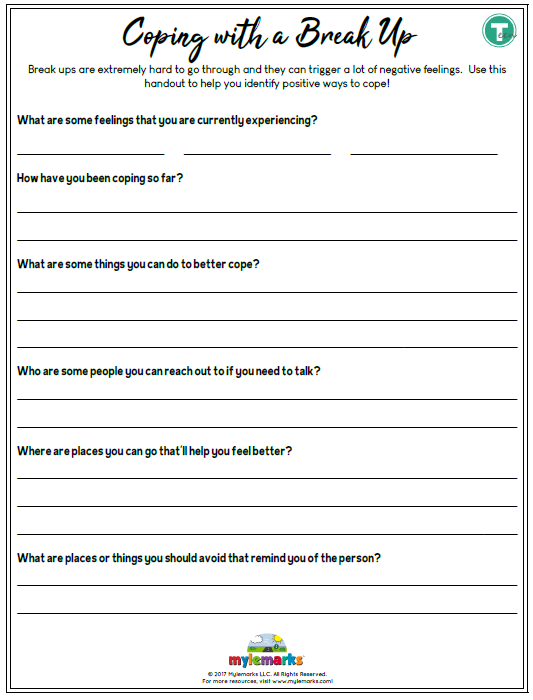
The Emotional Signals That Indicate Your Ex Is Over You
So, you're trying to figure out if your ex is truly over you? It's a tough situation, filled with uncertainty and maybe a little bit of hope (or maybe a lot!). Let's face it, navigating the post-breakup landscape is like walking through a minefield blindfolded. One wrong step, and you might find yourself right back in the emotional trenches. But don't worry, we're here to help you decipher those confusing signals and give you a better understanding of what might be going on in your ex's head (and heart!).
Understanding the Emotional Landscape After a Breakup
Before we dive into specific signals, let's talk about the emotional rollercoaster that often follows a breakup. It's rarely a neat and tidy process. There's anger, sadness, confusion, relief, maybe even a touch of guilt. For both of you! It's a messy, complicated mix, and the timeline for moving on varies wildly from person to person. What might take one person weeks could take another months, or even years. So, don't rush to judgment. Patience (as frustrating as it is) is key.
The Stages of Grief (and Beyond!)
Remember those five stages of grief? Denial, anger, bargaining, depression, acceptance? Well, those apply to breakups too. Your ex might be cycling through them in a jumbled order, or skipping some altogether. They might even be feeling things outside of that framework. Understanding that it's a process will make it easier to interpret their behavior in a less emotionally charged way.
Clear Signs Your Ex Has Moved On
Okay, let's get to the good stuffâ€"the signs that suggest your ex has finally moved on. Remember, these are indicators, not guarantees. Consider them as pieces of a puzzle, and the more pieces you have, the clearer the picture becomes.
Emotional Detachment and Lack of Contact
This is a big one. If your ex is truly over you, they’ll likely minimize or eliminate contact. No more late-night texts, no more random calls, no more "accidental" encounters. This doesn't mean they're necessarily happy, just that they've created emotional distance.
Positive Attitude and Self-Care
A person who has moved on usually shows signs of improved self-care. They might be exercising more, eating healthier, pursuing hobbies, and generally appearing more content and optimistic. They’ve taken the time to invest in themselves, instead of pining over the relationship.
New Interests and Relationships
This is a significant sign. If your ex has actively started new hobbies, reconnected with old friends, or even started dating someone new, it's a pretty strong indication that they've moved past the relationship. It doesn't necessarily mean they're happy *because* of the new relationship; it might simply mean they're ready to open themselves up to new experiences.
Emotional Stability and Reduced Reactivity
If you happen to interact with your ex, notice how they respond to you. Are they calm and collected, or do they still get emotional? If their interactions are neutral and unemotional, it suggests they've processed their feelings and are no longer invested in the emotional ups and downs of the relationship.
Respectful Boundaries
A clear sign of moving on is the establishment of healthy boundaries. They're not trying to stir up drama or maintain a complicated friendship that keeps you both stuck in the past. They’re polite but firm about respecting your space and their own.
Subtle Signs Your Ex Might Be Over You
Sometimes, the signs aren’t as blatant. It's important to look for more subtle indicators, too.
Reduced Social Media Engagement
This one is tricky, as social media can be a tool for both moving on and staying connected. But if your ex has significantly reduced their interactions with your social media posts, it could indicate they are consciously distancing themselves from you. Be cautious though, sometimes it simply means a reduced usage of social media.
Focusing on the Future
Does your ex talk about future plans without mentioning you? Are they setting goals and working towards them? This shows a focus on their own life and a detachment from the past.
Acceptance and Forgiveness
Perhaps the most significant subtle sign is when your ex accepts the breakup and forgives you (and themselves). This doesn't mean they'll suddenly become best friends, but it demonstrates a healthier emotional state and a willingness to move forward.
What If You See Mixed Signals?
It's entirely possible to see a mix of signals. Maybe your ex is mostly over you but still experiences moments of sadness or longing. Or perhaps they're trying to appear moved on, but their actions tell a different story. The key is to focus on the overall pattern of behavior. One random text doesn't necessarily mean they're not over you; however, if that's interspersed with mostly disengaged behaviour, it might be a brief moment of vulnerability rather than a sign of lingering feelings.
Focusing on Your Own Healing
Ultimately, whether your ex is over you or not is less important than focusing on your own healing and moving forward. Concentrate on your own emotional wellbeing, pursue your goals, and build a fulfilling life for yourself. Your happiness shouldn't depend on someone else's emotional state.
Commonly Asked Questions
- Q: My ex is dating someone new, does that definitively mean they're over me? A: While dating someone new is a strong indicator, it's not a guarantee. They might be using a new relationship as a distraction or rebound.
- Q: How long does it typically take to get over someone? A: There's no set timeline. It varies greatly depending on the individual, the length of the relationship, and the circumstances of the breakup.
- Q: What if my ex is still friendly but avoids deeper conversations? A: This could signify they're trying to maintain a superficial relationship without rekindling old feelings.
- Q: Should I try to contact my ex to see if they're over me? A: Generally, it's best to avoid this. Give them (and yourself) space to heal. Reaching out might hinder their progress and reopen old wounds.
- Q: My ex is acting strangely, is that a sign they're not over me? A: Strange behavior can have various causes. It's best to avoid interpreting it as a sign of their feelings about you unless it's a consistent pattern within the context of their broader behaviour.












